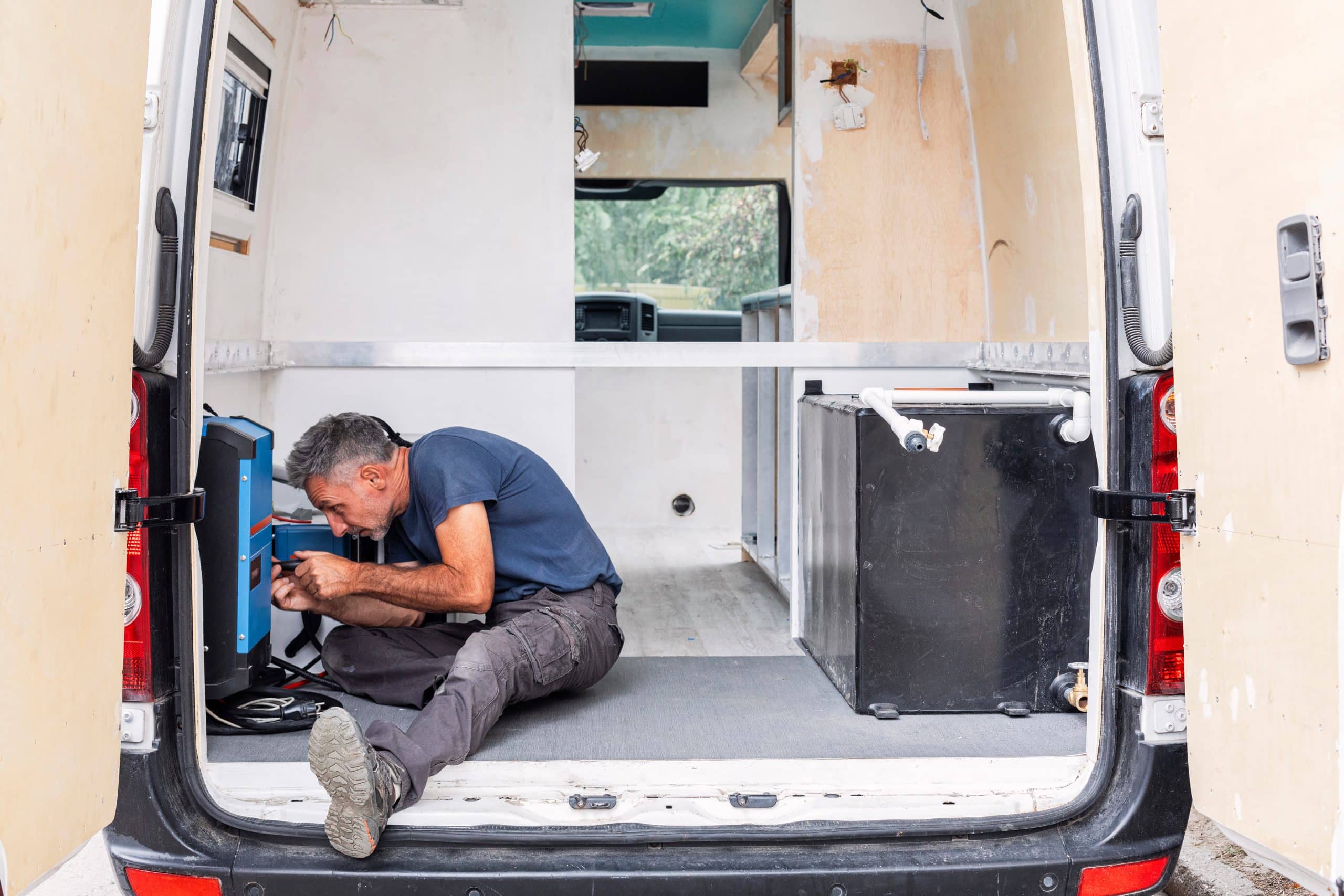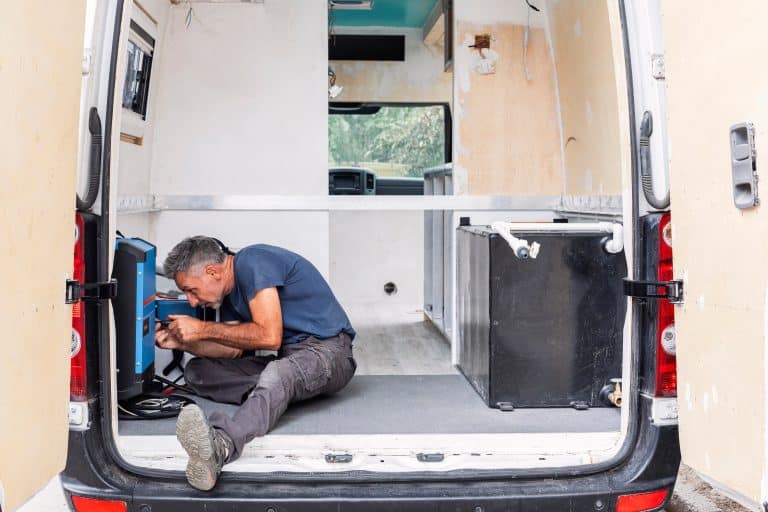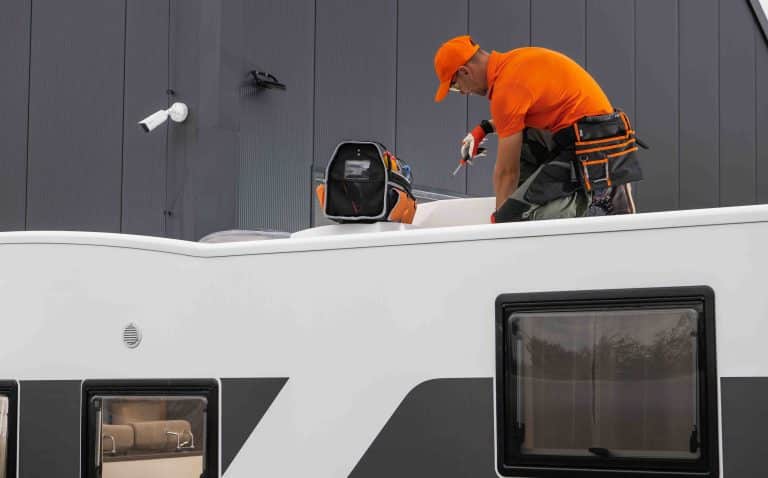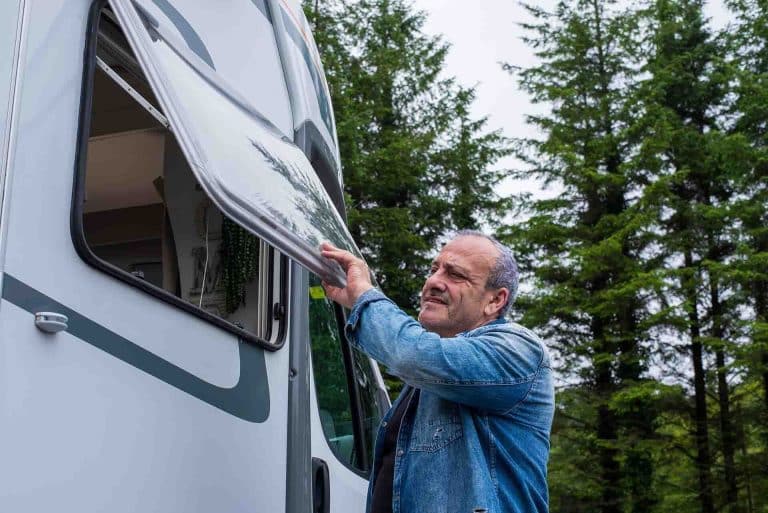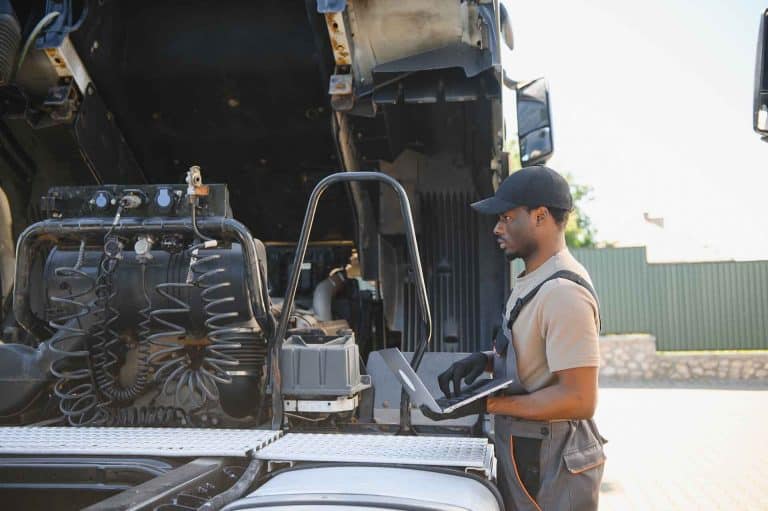Imagine you’re relaxing at a quiet campsite far from the city in your RV, and want to make a cup of coffee or watch a movie before bed. But how do you power your everyday appliances when you’re away from hookups or shore power?
That’s where an RV inverter system comes in. It lets you enjoy all the comforts of home while you’re on the road. You can use all the appliances of your basic needs, from brewing coffee to charging your phone, without needing to plug in anywhere.
At McColloch’s RV Repair, we help RV owners upgrade their rigs with inverter systems that make camping easier, quieter, and more convenient. Whether you travel full-time or just on weekends, the right inverter setup can make a big difference.
What Is an RV Inverter System?
An RV inverter lets you use your everyday household appliances while traveling in your RV. It does this by converting the DC (direct current) power stored in your RV’s batteries into AC (alternating current) power, the same type of electricity you use at home.
Your RV has a battery that supplies only DC power, which is good for basic tasks, like lighting, fans, or the water pump. But when it comes to running bigger or more sensitive appliances, like your coffee maker, microwave, refrigerator, or laptop, you need AC power. For this, your RV needs an inverter.
It acts as a bridge between your batteries and your household devices and allows you to enjoy all modern comforts even when you’re off-grid.
Types of RV Inverters
There are two main kinds.
- Modified Sine Wave Inverters are affordable and suitable for basic electronics. But they can create electrical noise that sensitive appliances don’t like.
- Pure Sine Wave Inverters are expensive but ideal for all devices. They offer smoother, stable, and consistent electricity.
How Does an RV Inverter System Work?
1. RV Has a DC Power Source
Your RV’s batteries store DC (direct current) power. This type of power runs small things in your RV, like lights, fans, or the water pump.
2. The Role of the RV Inverter
The inverter’s job is to take that DC power from your batteries and change it into AC (alternating current) power, the same kind of electricity that comes from your home outlets.
3. Power Distribution to Other Appliances
Once the power is converted, it flows through your RV’s electrical system and into your outlets. Now, you can plug in and run things like your microwave, coffee maker, laptop, or TV, just like you would at home.
4. When Shore Power or a Generator Is Available
If you plug into shore power or start your generator, your inverter may automatically switch modes or even help charge your batteries back up. That’s why many RVs use a combined inverter/charger system that works both ways.
5. Safety and Smart Features
A good RV inverter system includes built-in protection from overload, overheating, and low battery voltage. Some even come with display screens or remote controls so you can keep track of your power usage easily.
Why Does Your RV Need a Custom Inverter System?
All Rigs are not created equal, so a one-size-fits-all won’t always work. That’s why a custom RV inverter system is always a smarter choice.
1. Personalized Power
A custom inverter system is designed to satisfy your needs. Whether you need to power a laptop for remote work, a CPAP machine for restful sleep, or kitchen appliances for family trips, your system will be sized to handle exactly what you need. Moreover, it won’t waste energy or overload your batteries.
2. Better Performance
With a custom setup, every part of your inverter system, from battery capacity to wiring, works together smoothly. So, there is less power loss, longer battery life, and steady, reliable electricity no matter where you’re parked.
3. Safety
Electrical mistakes in an RV can be dangerous and expensive. A professionally installed custom inverter provides safe wiring, correct load balancing, and proper ventilation, so you can travel with peace of mind.
4. Easily Upgradable
You might plan to add solar panels or a backup generator later, but it’s not possible with a regular RV inverter. A custom inverter system can be designed to grow with your RV setup. You won’t have to redo the entire system, just expand it as your needs change.
Common Misconceptions About RV Inverters
| Misconception | Explanation |
| My RV outlets already work, so I don’t need an inverter | Many RV outlets only work when plugged into shore power or a generator. Without an inverter, those outlets won’t function off-grid. |
| Just pick the biggest inverter and you’ll never go wrong | Oversizing wastes space and money and can strain your batteries, reducing efficiency and lifespan. |
| Leave the inverter on all the time | Some inverters draw a small idle current, which can drain batteries. It’s often better to turn it off when not in use. |
| Confusing inverter vs converter | A converter turns AC (shore or generator power) into 12 V DC to charge batteries and run DC devices. An inverter does the opposite, converting DC from your batteries into AC for household appliances. |
How to Maintain Your RV Inverter System?
- Go for regular inspection. Check for loose, damaged wires and connectors every few months.
- Dust and moisture can cause corrosion or poor contact, so clean connections regularly.
- The inverter relies on batteries, so keep them topped up and replace as needed.
- For peace of mind, contact with skilled technicians, like those at McColloch’s RV Repair, for thorough annual checkups.
Our Answers to the Most Common Questions About RV Inverters
What appliances can my RV inverter run?
An RV Inverter can handle laptops, TVs, coffee makers, microwaves, and small kitchen tools.
What size inverter do I need?
It depends on the devices you want to run. Add up the wattage of everything you plan to use at the same time, like your microwave, coffee maker, and TV. Then add a little extra for safety. This way, your inverter can handle your power needs without overloading.
Is it safe to run air conditioning on inverter power?
Most standard RV inverters are not designed to handle the high power demands of air conditioning units. Running an AC on a regular inverter can overload the system and drain your batteries very quickly. Only custom inverter systems, which are sized for high loads and paired with a strong battery bank, can safely power an AC unit for longer periods.
How long do RV inverter batteries last?
With proper care, your inverter battery can last up to 5-7 years. Check batteries regularly and avoid deep discharges.
Can I install my own RV inverter?
Basic installations are DIY-ready, but complex, custom systems should be installed by professionals only.
Takeaway
A custom RV inverter system lets you use all your favorite home appliances while traveling. It gives you the freedom to go off-grid, the comfort of home, and the confidence that your power needs are always covered. Always choose an experienced Sacramento trailer repair company for professional RV installation and support.
Start Your Adventure With Power – Visit McColloch’s RV Repair for Custom Inverter Setup
At McColloch’s RV Repair, we offer personalized RV inverter installations and other trailer repairs.
We learn about each client’s travel style, preferences, and must-have features before designing their RV inverter.
Our certified technicians have over three decades of experience. We take care of your RV electrical system and make sure every job meets the highest standards for safety, durability, and reliability. We also handle all insurance paperwork and warranty claims to make everything easy for you.
Call us at 916-655-0380 to upgrade your RV power system!

